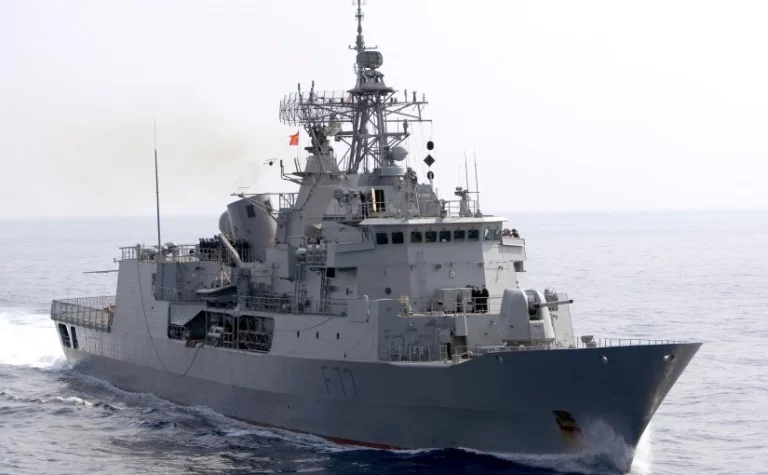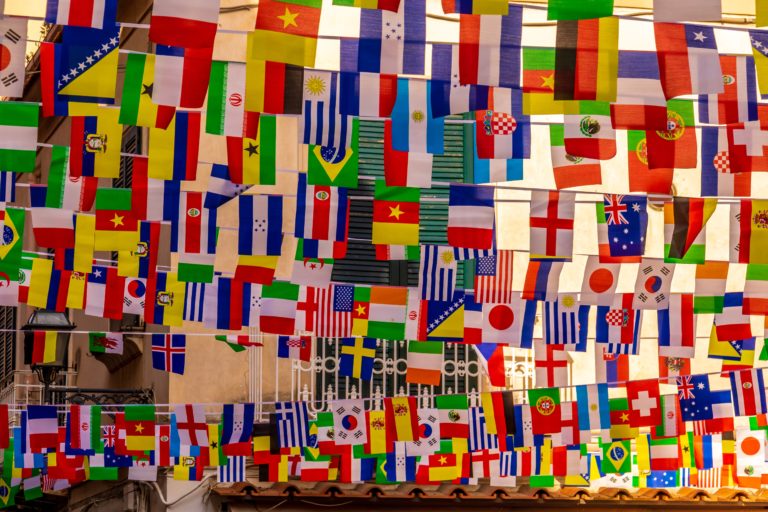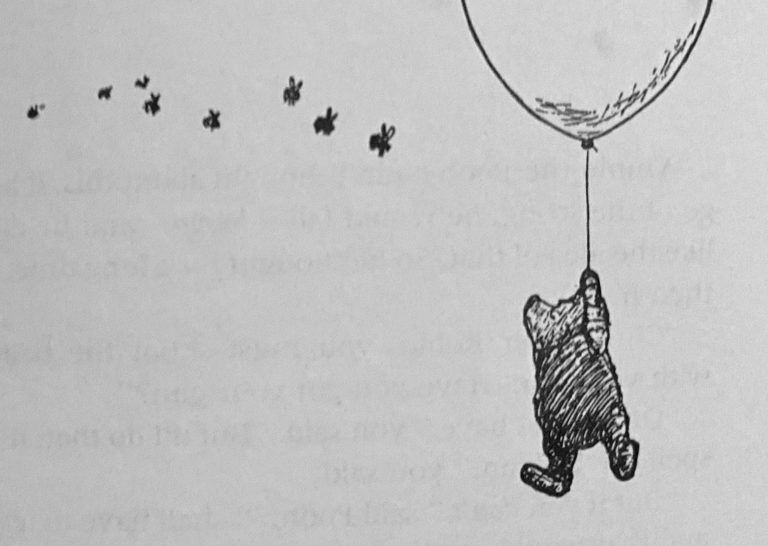Fraser and Churchill: A Working Partnership
Both Britain and New Zealand acquired their war leaders after war had already broken out. Both did so almost by accident. Neither Winston Churchill nor Peter Fraser had been leaders of their governments and both were distrusted by large elements of their own parties. But for both countries, half the globe away from each other, it was the direst emergency of their existence. Both sensed the need for someone who could rise to the challenge and both were lucky that the lottery of politics threw up the right answer.
When the war began New Zealand’s Prime Minister was Michael Savage, a sweet-natured optimist who believed that the world’s problems could be solved by discussion and was reluctant to prepare for war. His departmental head, who liked him, said he was “the most Christ-like figure I have ever known, and an absolute ninny”. As he lay dying of cancer, Fraser his tough-minded deputy stepped in and won the trust of his country as war leader months before he formally became Prime Minister.
He and Churchill were entirely different in outlook and background. In contrast to Churchill’s comfortable upper-class upbringing, Fraser had emigrated from Scotland to New Zealand as a penniless young man. He was a committed socialist working for radical change in New Zealand society and was universally seen by friends and enemies as a dour, authoritarian Scot whose politics were those of dogmatic conviction. He was also a shy, rather unsociable man and a sparing drinker. In the evenings the two occasionally spent together at Chequers it is hard to see him sparkling over the champagne and brandy.
Yet they understood one another and formed a bond which survived the stresses of six years of war. Fraser’s tact in managing the differing relationships with Roosevelt and Churchill was an important part of the glue which held the United States and Britain and its four Dominions together in one of history’s most successful partnerships.
Both were wide readers and both were conscious of History on their shoulders. Against Churchill’s long experience of affairs, Fraser’s intelligence and practicality enabled him to quickly grasp the issues of the wider world into which he had suddenly been propelled. Both could be exasperatingly wayward, autocratic and opinionated – the usual complaints of strong-minded leaders. Each was a loner, reluctant to share power, though each had an unvarying trust in their parliaments and a constant care to confide in them. Of the two, Churchill was the better office manager. Fraser’s War Cabinet never started on time and rarely had an agenda. Most of its time, according to its Secretary who claimed it gave him an ulcer, was spent “in a kind of dreamy and leisurely rumination on the obvious” with decisions being bundled hastily together at the close.
None of these shortcomings mattered very much (except to the harassed staff) because of the firm judgment and political skills of both men. They were not there as office managers but as men who could unite and motivate their countries. So for all the grumbles about their shortcomings they won the unreserved trust, if not always the love, of their fellow countrymen. They had greatness, a quality more easily recognised than pinned down, but which might be summed up as the ability to rise to any large occasion. On his journey to the Palace to be sworn in, Churchill muttered to his bodyguard, “I hope it is not too late. I am very much afraid it is”. It wasn’t, because his resolve carried the English-speaking world on his shoulders for the whole of 1940. Fraser had something of the same tenacity. Faced with bad news (and that was the only news there was in the first two years of the war), “he rubbed his great nose, thought it over for a minute or two – and just carried on”.
A comfortable understanding seems to have been established when they first met, in November 1939 with neither as yet Prime Minister. New Zealand was about to send off its hastily-raised Expeditionary Force and there was an argument over its naval escort. The Admiralty thought a light cruiser adequate for the initial stages; Fraser in London demanded a battleship. There was deadlock but Churchill, then First Lord, saw the political imperative at once and horrified the Admiralty by agreeing that a battleship was “a splendid suggestion”. So the elderly battleship Ramillies, which as so often with the elderly had trouble with its boilers on long journeys, managed to get to Wellington, its grey bulk and huge guns proclaiming that the utmost care was being taken of New Zealand’s departing sons.
It was however the fall of France six months later which sealed the regard each had for the other. The disaster meant that Britain faced imminent invasion and could henceforth concentrate only on its own defence. If Japan moved, the dire telegram told Wellington, “it is most improbable that we could send adequate reinforcements”. The increasingly anaemic hope that Britain could defend two hemispheres with a one-hemisphere navy collapsed and with it Australian and New Zealand’s reliance on fortress Singapore as the pivot of their defence against Japanese aggression. For the first time in their short history the two Dominions were directly threatened.
In this crisis Fraser may have rubbed his great nose but he showed his largeness of character by his next step. He sent a personal message to Churchill saying that he was not a military expert and could not guess the chances of victory. He hoped the British Government would fight on but (in words his London readers were not the only ones to find moving), “Whatever decision the British Government took in the difficult circumstances in which it found itself would be understood, accepted and supported by New Zealand to the very end”. Churchill was “deeply touched” and this forever established the mutual regard the two men had for each other.
The partnership comfortably survived its first test. The entry of Italy into the war changed the Middle East into a battleground. Egypt, where the New Zealand division was training, was surrounded by half a million Italian troops and the Vichy-controlled French North African territories. But it was the German invasion of Greece in the spring of 1941 which brought a major challenge. There were good reasons for trying to defend Greece but as it happened none of them were military. Only three inexperienced divisions, British, Australian and New Zealand, were available of the ten the planners thought were needed but Churchill, though increasingly pessimistic, thought the task had to be faced. Britain had given Greece a guarantee in easier times and could hardly walk away now, and the world (especially the United States) had to see that Britain was still in the field and able to fight.
Fraser too never wavered on this, even after the defeat which cost the New Zealand division almost 40% of its strength. He had no illusions about the prospect of success, asking London some hard questions about air cover, artillery and armour which went unanswered, but in his view to stand aside and keep safe would destroy “the moral basis of our cause and risk greater future damage than the failure of this operation”.
After Crete was lost the evacuation of the allied troops proved almost as costly as the fighting. When half the Mediterranean Fleet had been crippled or lost the Admiralty ordered the evacuation to stop. Fraser, who was in Cairo, could not agree to abandoning the New Zealanders still there and made an eloquent plea in Alexandria to Cunningham, the naval commander. When he finished speaking the ensuing silence was broken by Cunningham suddenly saying ‘Mr Fraser is right’. He would ignore his orders and make one last attempt: ‘It takes the Navy three years to build a new ship. It will take three hundred years to build a new tradition’. If the light cruiser Phoebe got home she would be sent back for one last effort.
In the darkness that night Fraser and Cunningham stood on the dock at Alexandria, waiting in the hope that Phoebe would arrive. It was nearly midnight before they could make out the faint loom of the ship as she ghosted in. Cunningham told the captain to return and pack in as many as possible. With a scratch crew the cruiser left at dawn. She returned safely the next day, though HMS Calcutta sent out to escort her was sunk, and brought 3700 soldiers from Sphakia. Cunningham and the Navy, said Fraser, were ‘beyond praise’.
The subsequent loss of Crete after a three-week battle commanded by the New Zealand general, Bernard Freyberg, raised more delicate questions. The island, held by a scratch force without air cover, could never have been defended for long. It was lost when the New Zealand battalion commanders failed to retake Maleme airfield but some of them, veterans of the earlier world war, had complaints about Freyberg’s leadership which troubled both Fraser (then in Cairo) and Churchill.
Freyberg, a New Zealander who had won a Victoria Cross and become a major-general in the British army, had earlier been chosen by Fraser to command the division his country was raising. Now there were doubts as to whether he was the right choice and with Parliament in Wellington about to debate the Crete debacle Fraser bustled about Cairo making a characteristically thorough investigation. Freyberg’s British commanders, Wavell and Auchinleck, were unanimous in their praise: if New Zealand did not want him they did. Fraser, untroubled by the sort of media campaign which would today have been demanding that Freyberg be sacked, decided to keep him on and never regretted his decision.
Churchill took longer to be convinced. He had a romantic view of Freyberg, “that battle-scarred warrior”, and had earlier told Fraser he could not have chosen a better man. Now he worried about the handling of the Crete battle. It took him some months to overcome his doubts, but Freyberg’s role in stemming the retreat at Mersa Matruh and in the allies’ first victory at El Alamein revived his confidence. Reviewing a parade at Tripoli he got out of his car, put his arm round Freyberg’s waist and said, “Thank God you are here”. At the end of the war he unsuccessfully hinted to the King that Freyberg should be given the Garter as a “hero of the British Empire”.
The partnership between the two Prime Ministers ran on straightforward lines as long as the war in the West was solely the burden of Britain supported by its Commonwealth. Yet it was the invention of Lend-Lease, bringing to bear the enormous productive capacity of the United States, that increasingly kept the democracies in the field. In August 1941 Churchill, who from his experience of the earlier war had always known that this war could not be won without the United States, sailed to meet President Roosevelt in a bay off Newfoundland. The aim was to proclaim the aims for which the allies were fighting to reassure the world and especially the people of the United States of (in Churchill’s words) “the rectitude of our purpose”.
The statement became the Atlantic Charter. Churchill radioed the draft back to London in the middle of the night, asking for approval by breakfast-time: “grave and vital interests” were at stake and it was important for Roosevelt to release it at once. Attlee, Churchill’s deputy, called a meeting of the War Cabinet in the small hours, getting Fraser out of bed at the Dorchester hotel. Fraser was the only Dominion Prime Minister there and so his views were vital, particularly over giving up the Empire preferences which governed Commonwealth trade and which the Americans disliked. Fortunately he took a generous view, commenting that “the importance of having a joint declaration far out-weighs any possible subsequent difficulties”. Then as a Labour leader he urged a clause on economic advancement and social security which went into the Charter unchanged and Churchill was left to thank the War Cabinet for “their amazingly swift reply”.
For the first time in history the allies (one of whom was not yet even a combatant) outlined the desired shape of the post-war world, and they did so with remarkable prescience. It also made clear the growing involvement of the US in the conduct of the war. London was fading as the centre of gravity for the British Dominions and when the Pacific war broke out the hitherto untroubled partnership between the two Prime Ministers had also to encompass the huge presence of the American President.
The simultaneous Japanese attacks on Pearl Harbor and Malaya were a turning point for New Zealand which found itself defenceless in the face of Tokyo’s sweep south (“we do not have a single fighter aircraft in the country”) and reliant on the still unknown intentions of the United States. At the beginning of January 1942 Fraser spelt out the new reality in a message to Churchill. New Zealand, he said, had always tried to see the problems of the war from the widest point of view and had been content to abide by the decisions of Britain when the war was in Europe. Now that the war “has moved to our doorstep” it was essential to know Washington’s intentions as well as London’s: “We feel that we must have an eye, an ear and a voice wherever decisions affecting New Zealand are to be made”.
Thus began the tussle by the two southern Dominions – expressed bluntly by Australia, more gently though no less persistently by New Zealand – for a voice in how the United States would run the Pacific war. Churchill was unenthusiastic. He felt that the war should be run by himself and the President, in the partnership he had been assiduously building since he came to power. British influence would be best sustained if he spoke to the President with the authority of the entire Commonwealth. So rather illogically, since Britain was no longer fighting in the Pacific, he proposed that a Pacific War Council sit in London and he would convey its views to the President.
This had some attractions for Roosevelt. He understood the importance of reassuring Australia and New Zealand but liked the thought that Churchill would manage the allies in London while he ran the war in Washington. The argument, sometimes irritable, ran on for weeks while Japan conquered the whole of South East Asia. The Australian Prime Minister in angry and sometimes strident messages berated Churchill for failing to understand the danger. Fraser tactfully praised the “inestimable advantages” of Churchill’s chairing a council in London but insisted that New Zealand had to have a seat at the table in Washington. Churchill was unresponsive and tempers rose to the point where the King felt compelled to suggest to him that something should be done to meet the wishes of the Dominion governments.
Churchill always a realist gave in and the Pacific War Council was established in Washington. It was not, however, the War Cabinet for which the Australians at least had been hoping. The President and his military chiefs had no intention of sharing America’s responsibility for the direction of the war. The Council met, weekly in the early months, under the chairmanship of Roosevelt who would give a rather idiosyncratic briefing on events and then invite the other members to raise any issues troubling them. Although Churchill, who attended whenever he was in Washington, attempted to stir the Council into making decisions on strategy, the President with his easy charm deflected any such aims. So the Pacific War Council’s role was purely cosmetic but in the early panicky months it helped reassure the peoples of Australia and New Zealand, it provided a channel through which those countries could make their needs for aircraft and military equipment known, and was a helpful reinforcement for their ambassadors in dealing with the huge wartime bureaucracy in Washington.
The pull of the Pacific, however, put increasing pressure on New Zealand’s limited manpower. It seemed odd to many in the country that its main fighting force was in North Africa rather than closer to home. Australia, fighting malaria and disease as well as the Japanese in New Guinea, was increasingly aggrieved that its sister Dominion had not rallied to its side. Fraser, too, felt that his country would have to make a bigger contribution in the Pacific if it was ever to have a voice in the peace settlement. An effort was made to raise another division which did fight for a time in the Solomons, but maintaining forces in the Mediterranean while feeding Britain and the increasing American armies in the Pacific was too great a stretch to be maintained. In a reverse Lend-Lease the country was feeding half a million American soldiers by the end of the war and the need for farm labour was such that a tactless American admiral said that New Zealand could best help the allies by withdrawing from the fighting and producing food.
The only practical solution was to bring the division home from the Mediterranean and a majority in Parliament and Fraser’s Cabinet favoured this. Churchill did not. The New Zealand division was rated by its supreme commanders, Eisenhower and Alexander, and by the German commander, Rommel, as the best in the Eight Army. Two Australian divisions had left and if the New Zealanders followed the allied army would have lost its most experienced troops. Churchill, perhaps sensing Fraser’s own ambivalence, played a subtle hand. “I should very much regret to see the New Zealand division quit the scene of its glories” but said he understood the difficulties, particularly after the Australians had gone home. Instead he suggested that Washington’s opinion should be sought.
This was shrewd because the Americans were no keener than the British to see the division moved. The huge increase of American forces in the Pacific was under way and there was little need for further numbers there. The chiefs of staff in Washington saw no military logic in weakening the North African front as it was turning in favour of the allies and General George Marshall argued strongly that the shipping needed to move the division home would cost 40,000 American troops in the build-up to the invasion of France. Fraser, after carefully arranging for Churchill to send a stirring message, secured from his Parliament a unanimous decision for the division to stay. Both the British Prime Minister and the President cabled their praise, Roosevelt saying “I believe you have done the right thing. It is altogether generous”.
Even though victory was far from won, the allies began to turn their thoughts to the shape of the post-war world. Churchill told the Dominion Prime Ministers in April 1943 that “We must devote serious thought to the planning of the future world organisation”. The allies had been caught unprepared by the end of the war in 1918; now they had the chance and the experience to arrange something better. The fall of Mussolini later that year emphasised, as Roosevelt pointed out, the need to have detailed proposals worked out and ready.
The Anglo-American discussions which followed settled the framework of the future United Nations (Roosevelt’s inspired name) and its specialised agencies, but since Britain had to consult the Dominions on all important points they had some influence on the final drafts. Thinking back to the failures of the thirties, New Zealand was anxious for the strongest possible world organisation to protect the peace and the independence of the smaller countries and had done a considerable amount of thinking about its form. Churchill favoured a rather eccentric arrangement of three regional councils, covering Europe, Asia and the Americas, and was suspected of doing so to enable Britain to oversee the future of Europe.
Fraser was vehemently opposed to dividing the world into regional blocs. New Zealand had no region into which it could easily fit and he argued convincingly that security from aggression was a world problem and that treating the invasions of Manchuria and Abyssinia in the thirties as purely regional issues had been the start of the slide into world war. So, while there was never a rift, the thinking of the two men began to take differing paths. On the need for a strong Security Council and for international supervision of colonies Fraser’s views were much closer to Washington’s. At the San Francisco conference which drafted the UN Charter he chaired the committee on the future of colonial territories and entrenched the principle of international accountability for their administration and political progress.
There was however a final demonstration of that steadiness in the face of a crisis which had brought the two together in the first place. In the closing days of the war it became clear that Marshal Tito’s Yugoslav partisans aimed to occupy Trieste and its hinterland, both Italian since the earlier war. Churchill was gratified that the new American President, Truman, saw this as land-grabbing “all too reminiscent of those of Hitler and Japan”. The New Zealand division, racing through North Italy, was the nearest allied force and Churchill asked Fraser in San Francisco if it could forestall the Yugoslavs. It was midnight in San Francisco when his cable was read to the short-sighted Fraser. He agreed before the reading was finished, telling Churchill that if New Zealand did not respond “all that we have won during five and a half years of fighting will be lost”.
His Cabinet at home were not so sure. People were war-weary, waiting expectantly for their troops to come home. In such a delicate situation New Zealand might find that far from ending the long hostilities it had started World War III. Fraser became incandescent over the hesitations of his colleagues and Churchill would have rumbled his appreciation to hear Fraser declare that, “in a crisis public opinion must not be feared, it must be met.” When Fraser hinted that he would resign the Cabinet backed down. The division took the surrender of the German forces in Trieste and, after a tense period when the opposing forces patrolled the streets fully-armed, Tito withdrew. It was the last time the two Prime Ministers worked together and a last flash of the firmness of purpose which they understood and shared.





